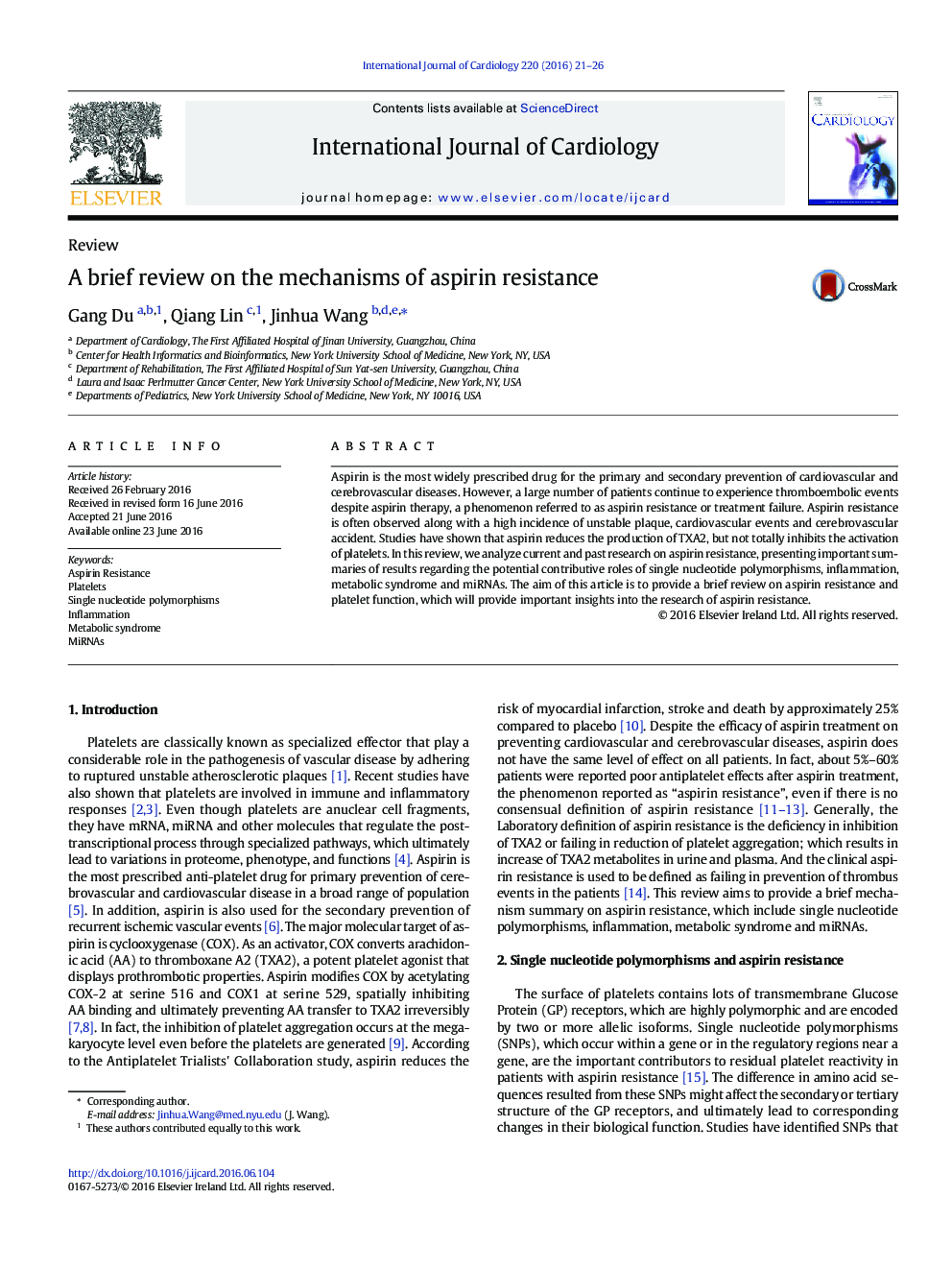| Article ID | Journal | Published Year | Pages | File Type |
|---|---|---|---|---|
| 5963320 | International Journal of Cardiology | 2016 | 6 Pages |
â¢SNPs might play a role in aspirin resistance, even the biological mechanism still remains controversial.â¢Metabolic syndrome contributes to aspirin resistance by accelerating platelet turnover, activation and adherence.â¢miRNAs play important roles in the regulation of platelet function and biological efficacy of aspirin.
Aspirin is the most widely prescribed drug for the primary and secondary prevention of cardiovascular and cerebrovascular diseases. However, a large number of patients continue to experience thromboembolic events despite aspirin therapy, a phenomenon referred to as aspirin resistance or treatment failure. Aspirin resistance is often observed along with a high incidence of unstable plaque, cardiovascular events and cerebrovascular accident. Studies have shown that aspirin reduces the production of TXA2, but not totally inhibits the activation of platelets. In this review, we analyze current and past research on aspirin resistance, presenting important summaries of results regarding the potential contributive roles of single nucleotide polymorphisms, inflammation, metabolic syndrome and miRNAs. The aim of this article is to provide a brief review on aspirin resistance and platelet function, which will provide important insights into the research of aspirin resistance.
